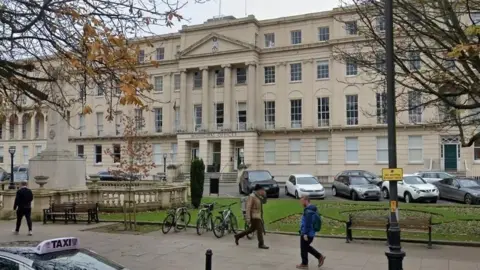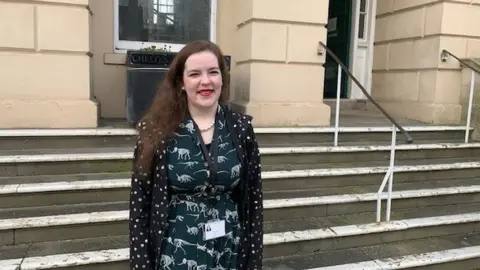Cheltenham council considering new district heat networks
 Google
GoogleCheltenham Borough Council is considering launching two heat networks, which could warm hundreds of homes and businesses in the town.
The authority says it is interested in recycling wasted heat generated from mechanical processes including factories or commercial kitchens.
It has applied for government funding to carry out feasibility studies.
These will examine whether the town centre and the new Golden Valley developments would be good locations.
The networks use water to carry heat from a single source through underground pipes to hundreds of homes and businesses.
Heat is brought into a building through a heat exchanger, removing the need for individual boilers.

Cheltenham Borough Council's cabinet member for climate emergency, Alisha Lewis, said heat networks could make up part of the authority's plan to become carbon neutral by 2030.
"One of the most interesting opportunities for us in Cheltenham is where we have properties producing a lot of excess heat, like commercial kitchens or factories," she said.
"We can help shift some of that heat to other properties to help lower fuel bills and reduce our climate impact.
"The opportunity to explore heat networks is there, and we're trying to take every interesting and innovative opportunity in the face of the climate crisis."
Heat networks are much more common in northern Europe, with Denmark getting about 60% of its heating this way.
They have been successfully launched by other local authorities in England, and currently make up about 2% of heating provision in the UK.
Bristol City Council currently has two networks which heat about 1,000 homes and businesses, and a third network is being planned.
The authority's cabinet member for waste, energy, climate change and ecology, Kye Dudd, said there was a "collective understanding" that there needs to be a move away from gas heating.
"Heat is 40% of the city's carbon footprint, which is the largest single element," he said.
"So we decided we definitely need to move away from carbon intensive forms of heat, and heat networks are one of the ways to do that."
'Can be disruptive'
While Cheltenham's plans are many years away from breaking ground, Mr Dudd had this advice for any future scheme.
"It can be disruptive when the installation is happening, because you have to dig up the roads to put the networks of pipes in - and nobody likes roadworks."

Follow BBC West on Facebook, Twitter and Instagram. Send your story ideas to: [email protected]
